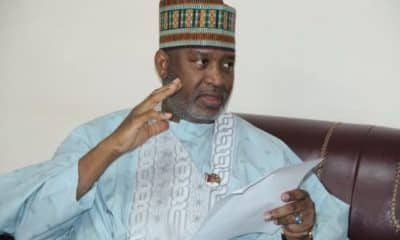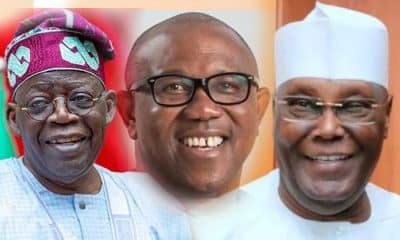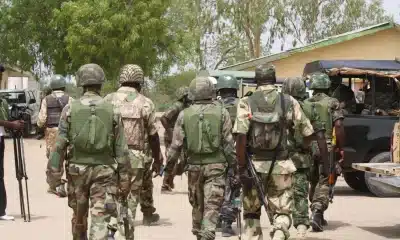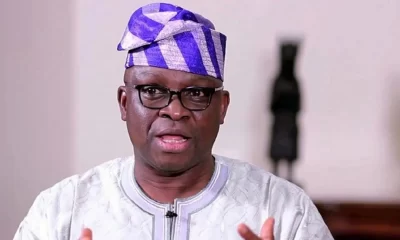Editorial
Nigeria Not Just INEC Needs Electoral Offences Commission
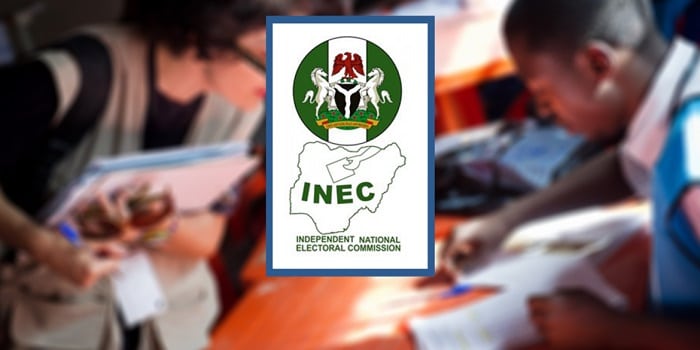
At the heart of sham general elections held since the advent of democracy in Nigeria are various manifestations of malfeasance. Nigerian politicians and their agents are a bunch of desperadoes out to win at all costs, not minding the damages their inordinate ambition leaves in its trail. Beyond scuttling the democratic process, the bellicosity and shenanigans of these do-or-die politicians and their musclemen fuel much fear in the electorate that they would rather stay indoors than go to exercise their civic duty on election day. The heist of elections Nigeria used to have hit a new low in 2007 such that the announced winner of the presidential poll, the gentlemanly Umaru Musa Yar’Adua, acknowledged in his inaugural speech: “that our elections had some shortcomings,” promising that his government will learn from the mistakes and remedy shortcomings that writ large the election.
True to this pledge, President Yar’Adua, on August 28, 2007, constituted a 22-member Electoral Reform Committee headed by retired Justice Muhammed Uwais to, among other things, “examine the entire electoral process with a view to ensuring that we raise the quality and standard of our general elections and thereby deepen our democracy.” This brief historical excursion is necessitated by the currency of one of the recommendations of this watershed panel. It called for the unbundling of the Independent National Electoral Commission (INEC) and the creation of a different agency to shoulder aspects of the electoral umpire’s functions. Enter the push for an Electoral Offences Commission, which also got promoted by the Senator Ken Nnamani electoral reform committee set up in 2015 by the Buhari government to do a further look into the report of the Uwais panel.
The outcome of the latest committee’s effort led the Federal Executive Council to approve that the Electoral Offences Commission Bill (2018) and two other bills be forwarded to the National Assembly for the country to have permanent institutions to drive proposed reforms of the electoral system. As desideratum as the proposed commission now is, opposing views were expressed on Tuesday when the “Bill for an Act to Establish National Electoral Offences Commission to Provide for the Legal Framework for Investigation and Prosecution of Electoral Offences for the general Improvement of the Electoral Process in Nigeria” was up for public debate organized by the House of Representatives Committee on Electoral Matters in Abuja.
While INEC, political parties, and civil societies supported the creation of the commission, the Economic and Financial Crimes Commission (EFCC) kicked against it, citing duplication of functions. Relating her Commission’s disapproval, an Assistant Commandant, Deborah Ademu-Eteh, said, “There is no need to create an agency solely for the purpose of investigating and prosecuting electoral offences, most especially when our electoral process is seasonal in nature, being that elections are held once in four years in the country. Furthermore, it is our suggestion that the existing law enforcement agencies should be strengthened to achieve maximum output Instead of creating a new agency for the investigation and prosecution of electoral offences in the light of the ongoing plan to implement the Oronsanye Committee’s proposal by the Federal Government of Nigeria”.
Although the anti-graft agency’s stance seemed plausible, Naija News does not believe the issues raised are enough for Nigeria to continue putting up with a malaise that is unravelling INEC and from which the country’s electoral system is reeling! An investigation into the government’s bureaucracy exposes so many less important agencies and parastatals, including the ones not backed by laws, yet are existing and enjoying the full complement of civil service. In the face of this, it becomes difficult why the country would invest in an Electoral Offences Commission whose impact would be so direct, utilitarian, and quite measurable. When EFCC points a finger at the proposed commission over duplication of roles, it must realize that the other fingers point right back at it because most of its statutory responsibilities were originally the jurisdiction of the Nigeria Police or the Code of Conduct Bureau.
Naija News believes that just as INEC is in a class of its own in the comity of federal agencies, that is how the proposed Electoral Offences Commission will be incomparable to the motley of government departments. This is because the proposed department already has its work cut out for it, unlike the redundant and ineffectual ones being catered for by taxpayers. Since 2007 when the country endured a scandalous general election, electoral offenders have not relented in trying to game the system. They are steadily developing ways to undermine and upend the electoral process. It is our belief that a hands-on Electoral Offences Commission will checkmate such characters.
We recall the very volatile rerun election in Michika state constituency in Kano a few years ago. What played out was so bad that INEC invoked Section 26 of the Electoral Act to suspend the election and later worked with the police to prosecute 40 electoral offenders. In the aftermath of the 2015 general election, 125 cases of electoral offences have been filed by the electoral umpire in various courts, out of which only 60 convictions have so far been secured. Yet, this responsibility falls on the same INEC saddled with the following responsibilities:
Register and regulate political parties, monitor party and campaign finance, their primaries, congresses, meetings, and conventions; carry out nationwide Continuous Voter Registration (CVR) and maintain the national register of voters; create polling units; delimit electoral constituencies; engage in voter education and publicity; manage electoral logistics; see to the recruitment, training, and deployment of election duty officials. The electoral body’s other duties include the conduct of numerous off-cycle and bye-elections; innovations to promote inclusivity and electoral integrity; election security in consultation with the security agencies; strategic engagement with stakeholders; formulation of regulations, guidelines, and manuals for the conduct of elections and electoral activities to give clarity to the provisions of the Constitution and Electoral Act; and maintenance of extensive physical assets (offices, residential accommodation, and other facilities) nationwide.
In other parts of the world, some of these are functions carried out by agencies different from the national electoral body. It is disingenuous for Nigeria to keep expecting an agency charged with a very sensitive national assignment to spread itself thin in going after ingenious electoral offenders bent on carrying the ballot. Take, for instance, the pervasive vote buying that is now the new political culture; the malpractice wasn’t non-existent in the era of the Uwais committee, yet the members saw the need for a separate commission that would deal with infractions.
Going against the trading of votes during elections is definitely one responsibility INEC will be too glad to heave on the proposed body so that it can concentrate on the conduct of free, fair, and credible elections. EFCC operatives were at the recently held presidential primaries in Abuja, which became dollar-bazaar events. They were also at recently conducted off-season polls, ostensibly to nab vote traders. We believe that EFCC would have been in a better place to resist the proposed commission if it succeeded against voter inducement.
It is high time riggers are held accountable and punished for subverting the peoples’ will with impunity. What better way to do this than by setting a dedicated agency after them. Anything that will boost voter confidence in the country’s elections must be encouraged, and the establishment of the Electoral Offences Commission is one of such measure.
Meanwhile, this newspaper expects that the responsibilities and roles of the proposed commission be clearly delineated, so there won’t be any need for rivalry or competition with INEC to prosecute culprits. Naija News doesn’t see the point in the argument that because elections are seasonal, the Electoral Offences Commission will be mostly redundant if created.
While we strongly believe that the said commission is an idea whose time has come, Naija News demands that every precaution must be taken to make the agency independent and insulated from both politics and partisanship. All efforts must also be made to give the commission an outlook of independence, competence, and neutrality. If the President has the power to nominate its chairman and principal officers, such nominations must be subject to Senate confirmation.

